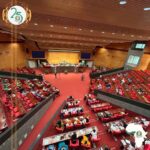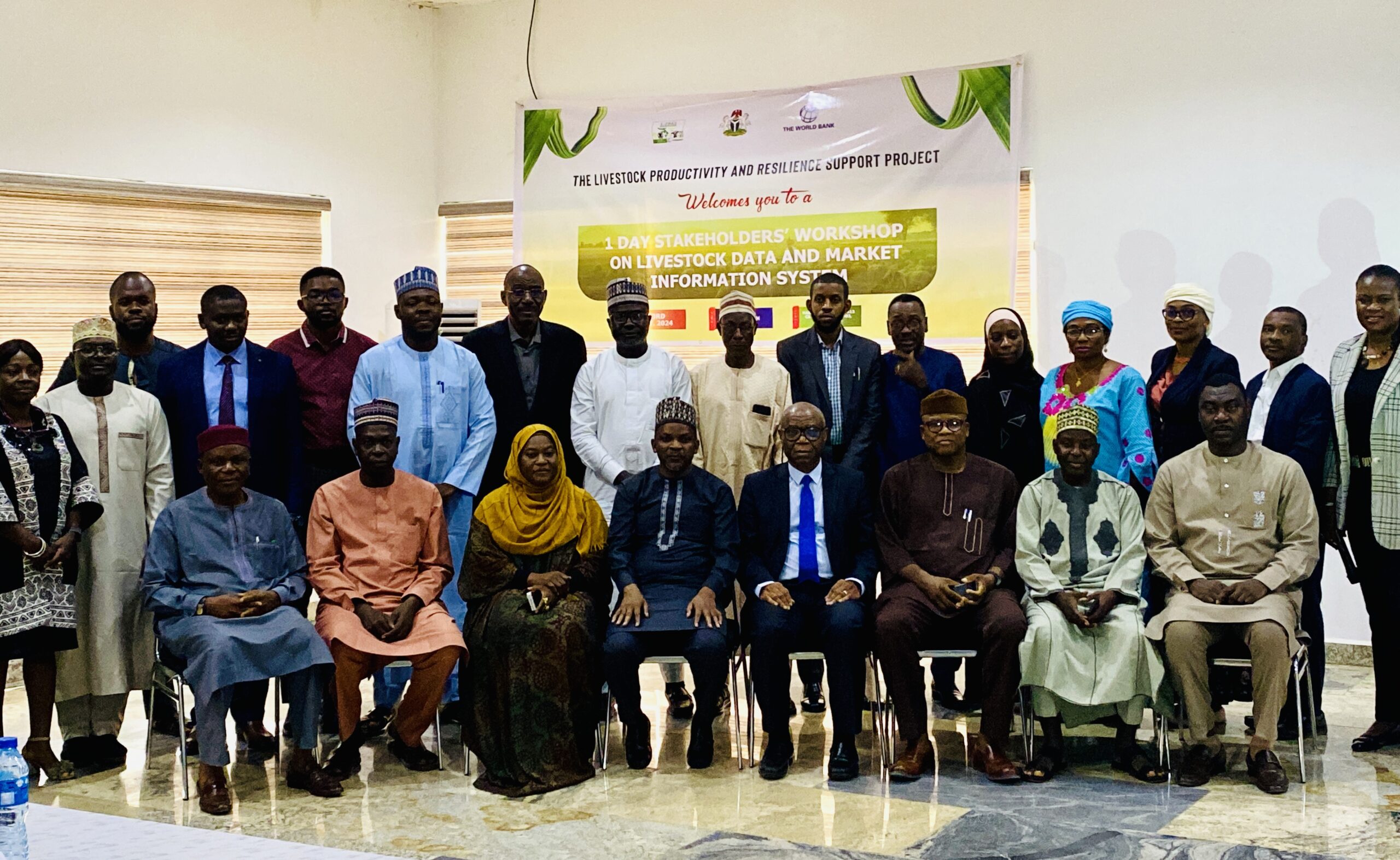By Tosin Kolade
The Livestock Productivity and Resilience Support Project (L-PRES), has introduced the Livestock Data and Market Information System (LMIS) to provide real-time information for transforming the sector.
This initiative is part of the six-year L-PRES project, funded by 500 million dollars from the International Development Association (IDA), aiming to enhance productivity, commercialisation, and resilience in Nigeria’s livestock industry.
Mr Sanusi Abubakar, L-PRES National Project Coordinator, at a workshop in Abuja, explained that the LMIS would strengthen institutional systems, improve market linkages, and promote crisis prevention.
“The system will offer market information through various channels, creating a comprehensive marketing database for planning, policy formulation, research, and trend monitoring.
Prof. Herbert Udo, Registrar of the Nigerian Institute of Animal Science, highlighted the significance of data in livestock development, noting that well-developed livestock marketing information systems were invaluable for national planning.
“As a regulatory body with zonal and state offices nationwide, the Nigerian Institute of Animal Science is committed to collaborating with L-PRES and other stakeholders to operationalise the LMIS,” he stated.
Udo cited successful partnerships among farmers, markets, and policymakers in other parts of Africa, expressing confidence that similar successes could be achieved in Nigeria.
Mr Ibrahim Wali, representing the Federal Ministry of Agriculture and Food Security, emphasised the need for real-time data to ensure livestock productivity.
“In this sector, livestock owners often exchange animals for income without recorded transactions or data collection,” he noted.
He noted that the current number of animals was uncertain, and prices for a kilo of meat in Maiduguri or Abuja were often based on guesswork.
“Having real-time data on the prices of sheep, beef, or poultry will be extremely beneficial,” he stated.
Wali added that access to real-time information had transformed purchasing behaviour.
“Everything we do is consumer-driven. Consumers want to know the quality of the beef, chicken, meat, or turkey they are purchasing.
“The world has changed, especially since COVID-19, making it possible to do everything online.
“Consumers can now order beef and chicken online and, knowing the prices, they can purchase from anywhere, even if they are in Lagos”.
Mr Johnson Opigo, LMIS consultant, stressed the importance of data and information systems for improving livestock productivity.
He explained that accurate and timely data enable farmers to make informed decisions about breeding, feeding, health management, and marketing strategies.
“A robust information system provides real-time market data, helping producers understand trends and pricing to make better sales decisions.
“Additionally, information systems can issue early warnings for disease outbreaks and market fluctuations, allowing farmers to take preventive measures”.
Opigo also noted that data on livestock performance and health optimises resource use, reduces waste, and increases efficiency.
He stated that comprehensive data informs policymakers, leading to better regulations and support programmes that enhance productivity and sustainability in the sector.(NAN)(www.nannews.ng)
Edited by Abiemwense Moru












